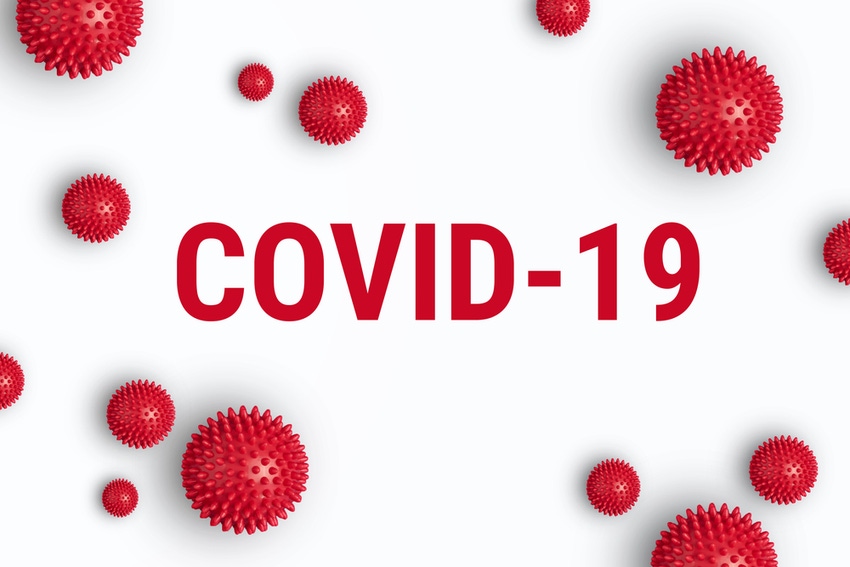COVID-19 is providing an unprecedented opportunity for hackers.

The coronavirus is by far the most significant issue to affect the technology industry this year, and while not beneficial, it could provide a good opportunity for cybersecurity providers to prove themselves.
That’s according to a new report by GlobalData. All sectors will be negatively impacted by COVID-19, it said.
“Companies around the world have rushed to enable remote working to keep themselves running,” said David Bicknell, principal analyst in the GlobalData thematic research team. “While no technology sectors benefit from COVID-19, cybersecurity companies that can keep the home-working army secure against the increasing number of COVID-19-related cyberattacks will earn their spurs.”
A worried population, businesses struggling to survive and naive home-workers offer a tempting target for criminals, according to GlobalData. While this is an “unprecedented opportunity for hackers,” the same applies for cybersecurity companies to prove their worth — not necessarily through new products, but “by placing more emphasis on existing defenses,” it said.
Opaq and PacketFabric on Monday announced a partnership to provide customers on-demand, elastic network-as-a-service (NaaS) connectivity with a suite of built-in security controls. The joint offerings allow organizations to provision connections between their data centers, cloud service providers, field offices and remote users, that are protected by threat inspection and prevention capabilities.
With entire companies mandating that employees work from home, networks designed to support 50-or-so remote users now must provide access for hundreds or even thousands of connections, according to Opaq. In addition to bandwidth problems, COVID-19-related remote work is straining security appliances used to inspect traffic entering and leaving corporate data centers, while devices used by employees are now underprotected, which opens the door to new security risks, it said.

Opaq’s Derek Gabbard
Derek Gabbard, Opaq’s vice president of global services, tells us partners whose customers need to scale up their remote users or scale up the use of cloud services have the flexibility when using the Opaq platform to provision additional capacity for these use cases, and have security controls and inspection policies automatically in place that are turnkey. This allows partners to be “extremely responsive and fast” in delivering more capacity for customers who need it with minimal heavy lifting on their end, all while ensuring the customer’s security policies and inspection needs are met, he said.
“For example, one customer who had dozens of remote users accessing their cloud services through the Opaq platform may now have hundreds of those remote users,” he said. “This increase in users is gracefully handled by the Opaq cloud with minimal configuration and management — the partner simply instructs additional users to install the Opaq agent and the capacity to support them is automatically available in the Opaq network. There is no impact on enterprise bandwidth, no impact on enterprise VPN licensing limits, no impact on users at all.”
The Opaq Secure Access Service Edge (SASE) platform provides PacketFabric users enterprise-grade firewall as a service (FWaaS) and endpoint protection as a service (EPaaS) on a fully encrypted infrastructure that can be centrally managed through the Opaq 360 cloud console for 100% network visibility and control. Through the Opaq SASE platform, customers can securely reach PacketFabric’s community of cloud service providers, XaaS companies, unified communication (UC) services and other collaboration partners to support the growing demand for remote work.
“The COVID-19 pandemic has very rapidly changed the demands being placed upon business infrastructure as workforces have shifted from office buildings to remote locations,” said Chad Milam, PacketFabric‘s president and CEO. “By providing automated, scalable, private connectivity to our customers, we empower them to quickly provision new capacity and instantly connect to service providers such as Opaq. This capability allows enterprise infrastructure to …
… react and get in front of the fast changing needs. Opaq’s SASE offering enables our customers to implement zero trust principles, and consistently apply and enforce security policies across their entire network.”
Cato Networks said since the outbreak it has been flooded by requests from its SD-WAN users for quick deployment of large-scale, remote access. In the past two months alone, it has seen traffic from remote users more than double across the Cato global network.
Partly as a result of that need, Cato has unveiled Instant Access, a clientless remote access solution built on a complete SASE platform. With Instant Access, companies can equip their entire workforce with remote access with no hardware to deploy and no software to install. Instant access, along with Cato’s Mobile Client solution, comprise Cato SDP, the company’s optimized mobile access solution.
Sign up for Channel Futures’ new EMEA newsletter, where we feature news and analysis involving companies based in Europe, the Middle East and Africa, as well as those doing business in that region. |
With Instant Access, users can only access authorized applications. For those requiring full access to both web and legacy applications, Cato continues to offer its Cato Client as part of Cato SDP.
Multifactor authentication (MFA) is part of the SASE platform and is provided with Cato SDP.
Niv Barzilay, Cato’s channel marketing manager, tells us his company allows partners to meet the urgent need for high-performance, scalable, secure remote access. Cato SDP with Instant Access is the only secure, remote access solution to benefit from the “scalability, manageability and performance” of a SASE platform, he said.

Cato Networks’ Niv Barzilay
“Keep in mind that Instant Access is just a part of Cato’s broader SASE offering,” he said. “Cato futureproofs customer networks against whatever comes next; COVID-19 is only one example. Cato converges SD-WAN and network security into a global, cloud-native service. Cato optimizes and secures application access for all users and locations. As such, Cato partners can also help their customers: easily migrate from MPLS to SD-WAN; optimize connectivity to on-premises and cloud applications; enable secure branch internet access everywhere; and seamlessly integrate cloud datacenters, mobile users, and, of course, remote users into the network with a zero-trust architecture.”
Bitdefender plans to offer its enterprise-grade security solutions free of charge to all health care organizations globally to contribute to the global support effort during the pandemic. Health-care businesses of all sizes, from small dental and ophthalmic practices to large hospitals, can visit here to request free access to Bitdefender’s products.
For large organizations, Bitdefender also will offer their professional services and advanced technologies like network traffic security and analytics.

Bitdefender’s Florin Talpes
“Hackers have acted opportunistically and unethically, taking advantage of this time of uncertainty to deliver malware, conduct phishing, and perform online fraud against the organizations affected most,” said Florin Talpes, Bitdefender‘s CEO. “We are thankful for the work of health care professionals worldwide and aim to support them by providing protection for their organizations’ sensitive information in a way that assures operational continuity and lets them focus on treating patients and slowing the spread of this virus.”
Access to Bitdefender’s enterprise security solutions will be offered through the end of June to start, with the opportunity to evaluate organizations’ need and extend access for up to a total of 12 months at that time.
Read more about:
MSPsAbout the Author(s)
You May Also Like


